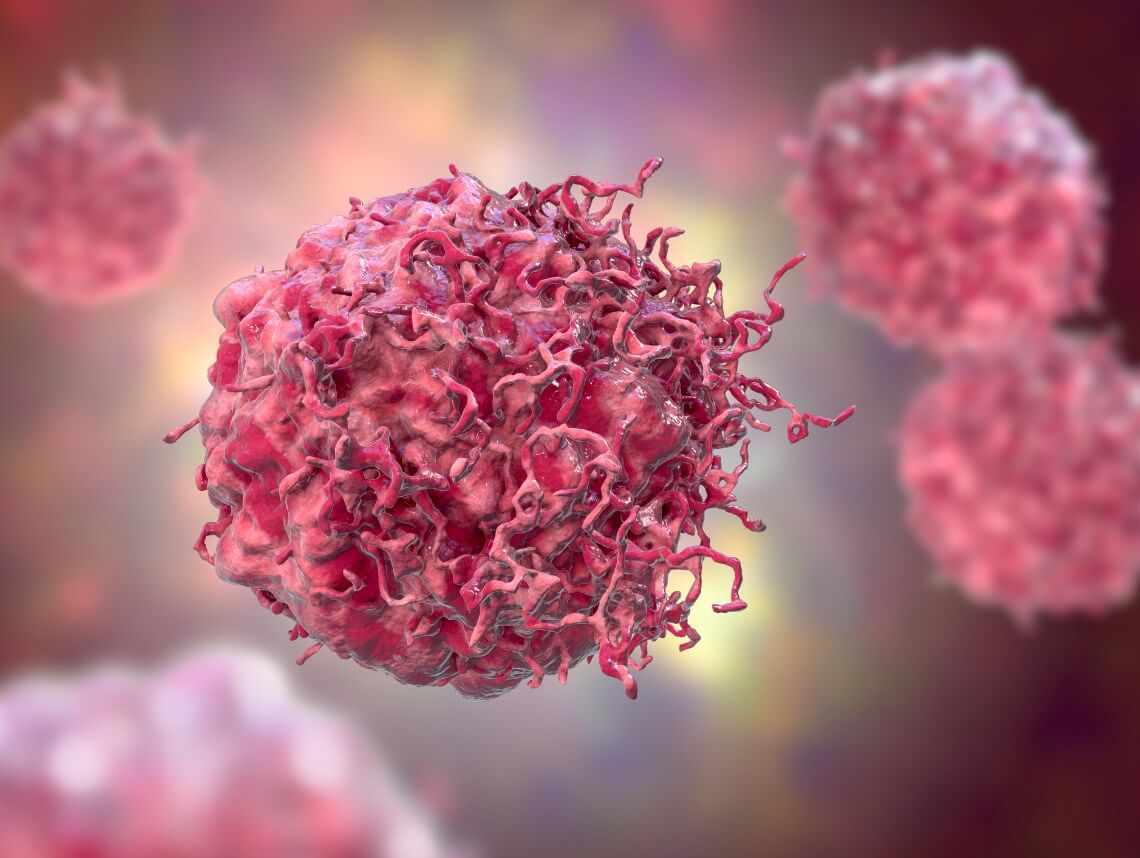Receiving a diagnosis of neuroblastoma can be an extremely difficult and scary time for your family. There is a wide range of neuroblastoma types and outcomes, and it is understandable to have questions.
When exploring treatment and long-term care for this condition, knowledge is a very powerful resource for your family. This helpful overview of neuroblastoma can help you better understand this condition, as well as effective options for treatment and care, so you can be involved with your little one’s care and achieve the best outcome for your family.
What is neuroblastoma?
Neuroblastoma is a form of cancer. Specifically, it is a growth or tumor that grows from immature nerve cells. These nerve cells can be found throughout the body, and neuroblastoma commonly grows in areas including adrenal glands near the kidney, the abdomen, the chest, and regions near the spine.
Because neuroblastoma develops from nerve cells that grow before birth, it is most frequently found in young children. In rare cases, it can happen to children over five years old.
There can be a range of severity for neuroblastoma, with milder cases going away on their own and more serious cases requiring multiple rounds of intensive treatment.
Neuroblastoma Causes
Like other forms of cancer, neuroblastoma is caused by a genetic mutation that makes cancer cells reproduce without stopping. While a family history of cancer can be a risk factor for neuroblastoma, in most cases the primary underlying factor cannot be identified.
Neuroblastomas develop from neuroblasts, which are developmental nerve cells that are made while the baby grows in the womb. If these cells don’t fully develop into nerve cells or disappear, they can form a tumor, or neuroblastoma.
Neuroblastoma Symptoms
The specific symptoms of neuroblastoma depend on the location, with abdominal neuroblastoma being the most common. Signs and symptoms of neuroblastoma include:
- Abdominal pain, a hard mass under the skin, and changes in bowel habits are common signs of abdominal neuroblastoma
- Chest pain, abnormal breathing, wheezing, unequal pupils, and droopy eyelids are symptoms of neuroblastoma in the chest
- Back pain
- Feeding problems
- Developmental delays and problems
- Unexplained weight loss
- Fever
Neuroblastoma Complications
As with other forms of cancer, the most serious potential complication is for the tumor to metastasize and spread to other areas of the body, including the lymph nodes and bone marrow. Additionally, neuroblastoma can grow to cause compression of the spinal cord, resulting in pain and nerve-related symptoms such as tingling, numbness, and muscle weakness. Neuroblastoma can also cause a complication known as paraneoplastic syndrome which can result in irritation in surrounding tissue as well as potential difficulty with coordination and eye movement.
Diagnosing Neuroblastoma
If a doctor suspects that neuroblastoma is present due to a visible growth or likely symptoms, they can perform the following steps to positively diagnose the condition:
- Review medical history
- Perform a full physical examination
- Order diagnostic tests including blood and urine analysis
- Order imaging, including X-ray, CT scan, MRI, and ultrasound to reveal or confirm the presence of a tumor
- Perform a bone marrow biopsy to determine if there is cancerous growth present there
Upon diagnosis, the next step is to determine the stage of development for the neuroblastoma. These stages are graded from 0 to IV from least severe to most. Knowing how advanced the growth is can help determine the most appropriate course of treatment.
Neuroblastoma Treatment
Treatment for neuroblastoma can include:
- Surgery to remove the cancerous growth
- Chemotherapy to chemically destroy cancer cells
- Radiation therapy to destroy cancer cells
- Bone marrow or stem cell transplant
- Immunotherapy, which can use the body’s immune system to target cancer cells such as neuroblastoma
Caring for a Child with Neuroblastoma
Children with neuroblastoma have to overcome a wide range of physical, emotional, mental, and social effects related to a cancer diagnosis. There are typically multiple specialists involved, with regular appointments related to diagnosis and treatment. Children will need a lot of care and attention during this time, particularly if it is a more advanced or serious diagnosis. Behavioral and emotional counseling can help children and families alike cope with this situation.
In many cases, pediatric home health services are a critical aspect of care that helps many families successfully manage this condition. From assisting with medications and treatments at home to helping with nutritional needs and a range of other critical aspects of care, a pediatric home health professional can help children dealing with neuroblastoma achieve the best possible outcome.
Contact Care Options for Kids for Home Health Care in Florida
It can be hard to balance your time between work, home, and caring for a child. That’s why our team of skilled professionals at Care Options for Kids is here to help. We have been enforcing precautionary measures and following the Centers For Disease Control (CDC) guidelines for COVID-19 to ensure the safety and health of our clients and employees.
Our home health care services offer one on one support in the comfort of your home. We refer loving and competent nurses to provide customized care for families — from a few hours a day to around-the-clock supervision. Contact us directly to speak with a home health care professional or request a free in-home assessment. Together we can determine the best plan of action to keep your loved ones happy and healthy.
If you or a loved one are considering Pediatric Home Health Care Services in Florida, contact the caring staff at Care Options for Kids. Call today at (888) 592-5855.






